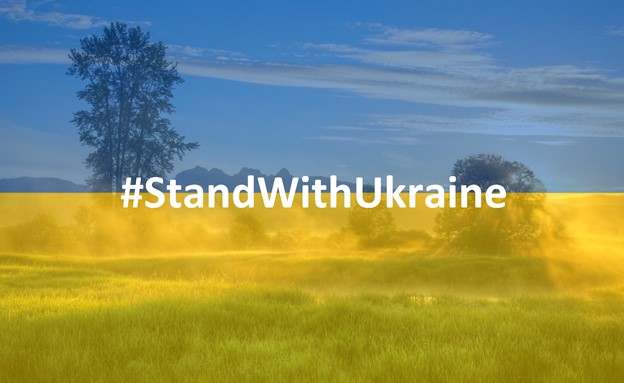A war quickly reaches every aspect of society, and we can certainly say that war is the nemesis of international cooperation – just as science aims to be its champion. We, from the TBFVnet project, were overwhelmed, as was everyone in Europe, by the news coming from Ukraine in recent weeks. Initially, we hoped that our project could be immune to the consequences of this war. We believed science to be immune to war. We thought that since it has no borders, scientific collaboration could continue beyond politics, economic crisis and maybe even war, this was. We were naive and soon this crisis had big and direct consequences for our project.
We expected a lot from our project in the coming year. During the past two years of the pandemic, we struggled to see each other and waited for calmer and safer periods to organise meetings and workshops to share scientific knowledge on tick-borne flaviviruses amongst ourselves and with our peers. We were truly excited by the prospect of being able to do so. One of the objectives of our project is to enlarge our network with the aim to foster the surveillance of tick-borne flaviviruses in many other countries in Europe. In this context we were organising a large meeting in Chisinau, the Republic of Moldova to take place in May 2022. We had no project partner in this country, but some research institutes had expressed an interest in joining the network. This premise led us to believe that a new partner could be the Nicolae Testemitanu State University (USMF). Regrettably, all of this disappeared with the war. The meeting is being rescheduled, hopefully to September. In reality, we cannot be sure when or if it will take place.
However, the most challenging aspect of the TBFVnet project has been that one of our partners, the Chumakov Institute, is based in Moscow. Soon after the war started and Europe decided to shut down all economic support and relationships with Russia, it became clear that this would affect our collaboration. In fact, our Russian partner was forced to leave the project as it could no longer receive payments from the Regional Cooperation Fund. Notwithstanding this setback, the collaboration continues with partners in the Czech Republic, Slovakia and Norway hoping to be able to re-establish connections with our colleagues in Moscow in future, hopefully peaceful, times.
We need to be honest: ticks, as well as the viruses they can carry, are the very least of the problems being faced by the people of Ukraine at this time. Both soldiers and citizens literally fight to survive, and the consequences of a tick bite are not considered a health priority. However, we should also point out that the whole health system in Ukraine is being heavily affected, including the ability to diagnose infections at large, survey infected animals and instruct healthcare providers. It will take years to rebuild all this, while pathogens still circulate across borders. It will be the responsibility of networks such as TBFVnet to reinforce their activities to maintain high attention in the Region and to provide support also towards refugees fleeing war.
One could also say that science and cross border cooperation is not big matters to lose. However, they required years, perhaps even ages, to build. And many many years will be needed when this war comes to an end to rebuild cross border cooperation and scientific collaboration.
When Western countries established sanctions against Russia for its invasion of Ukraine also many international scientific institutions followed along the same line. A notable example is the CERN Council which decided to suspend Russia’s observer status. CERN has made scientific collaboration the core of its mission: it was funded “with the aim of bringing nations and peoples together around science in a spirit of peace”. Clearly, this war affects the fundamental aspect of this international organization. Many Russian scientists have risen up against their own government and its war to stand with Ukraine, the international community and peace.
As the former Director-General of our partner ICGEB, Mauro Giacca, recently wrote for a newspaper in Italy: “It is really difficult to understand whether it is more productive to keep Russian scientists within the international community or to penalise them so that their institutions become vocal in demanding change. Either way, the notion that you can do something in life that has no political implications, including science, remains a myth that again breaks hard against reality.”
Usually, we do not know what scientific research can bring in the future, but oddly, we now risk that nothing could be the answer. Nothing will ever be discovered, explained or developed where there is no collaboration. It will be our responsibility to maintain active all scientific networks of collaboration to minimize this risk and to be able to recover as soon as possible.
This article was originally published in the April issue of the Regional Cooperation Magazine.


